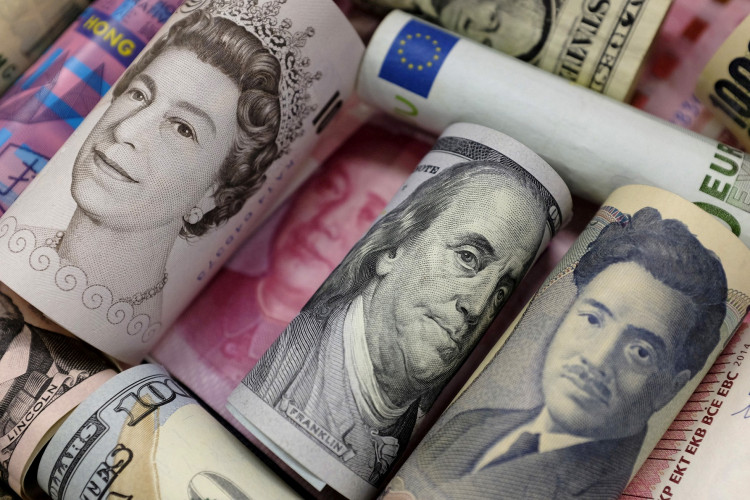The US dollar strengthened on Tuesday as concerns over earnings and the global economic outlook intensified, pushing the euro away from a recent 10-month peak. The US dollar index rose about 0.2% to 101.37 after declining over 3.3% since early March.
Monday's news of a significant drop in deposits at First Republic Bank (FRC.N) served as a reminder that risks to financial stability have not completely vanished. Meanwhile, UBS (UBSG.S) reported a 52% decrease in quarterly earnings. In May, central banks worldwide will reduce the frequency of their dollar liquidity operations with the US Federal Reserve, indicating that the financial market turbulence experienced in March has largely subsided.
Nevertheless, safe-haven currencies such as the Japanese yen strengthened. Despite new Bank of Japan (BOJ) Governor Kazuo Ueda signaling no rush to change policy, the yen climbed 0.3% to 133.855 per dollar and 0.4% to 147.67 per euro after touching an eight-year low of 148.635. The BOJ meeting this week, concluding on Friday, marks Ueda's first as governor.
Jens Nærvig Pedersen, Director of FX and Rates Strategy at Danske Bank, said, "I see a prospect for a stronger yen on the back of monetary tightening in Japan but also because we're reaching the end of the tightening cycle in the US." Pedersen anticipates BOJ tightening in June or July due to inflation being well above target.
The euro dipped approximately 0.1% against the dollar but remained above $1.10. It has gained 1.7% in April and more than 4% since early March. Pedersen explained that the euro's recent strong performance against most currencies is due to optimism surrounding the eurozone economy and expectations of additional European Central Bank (ECB) rate hikes.
Isabel Schnabel, an ECB board member, told Politico that a 50 basis point (bp) rate hike is possible, depending on data, particularly inflation figures expected two days before the ECB's May meeting. Although French ECB policymaker Francois Villeroy de Galhau called for limited further rate hikes in terms of number and size in an interview with Le Figaro, markets have focused on expectations of additional hikes. Futures pricing indicates roughly a 2/3 chance of a 25 bp ECB hike and a 1/3 chance of a larger 50 bp increase.
The Swiss franc, known as a safe haven, appreciated 0.1% against the stronger dollar and reached its highest level against the yen in two decades at 151.36, according to Electronic Broking Services data. Sterling dropped 0.1% to $1.2473 but hovered near a 10-month high of $1.2545 achieved earlier this month. The Australian dollar weakened to $0.6654 ahead of Wednesday's inflation data release, while the New Zealand dollar stood at $0.6152.




